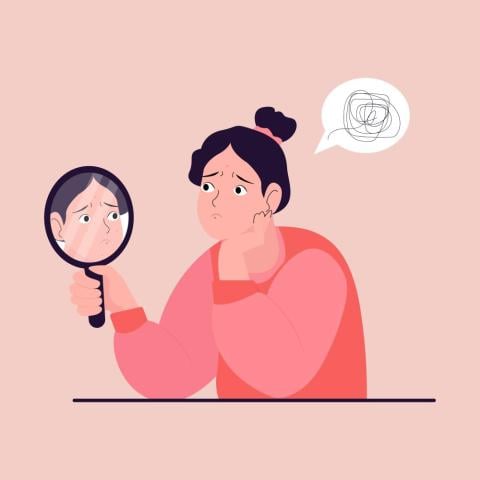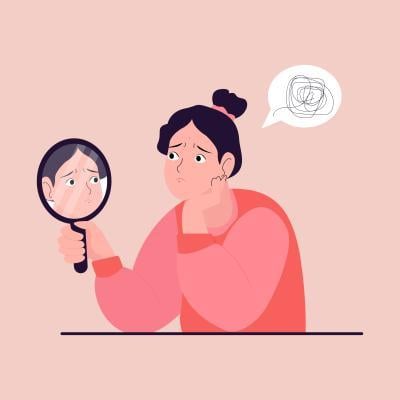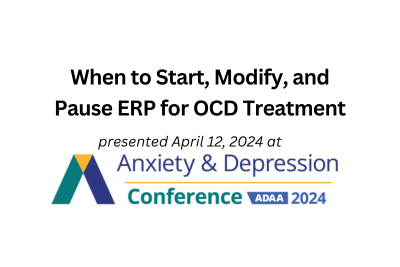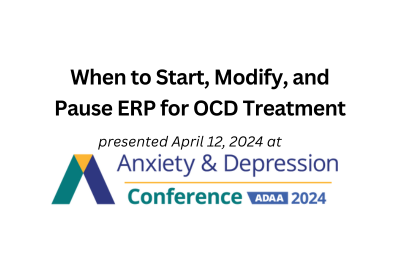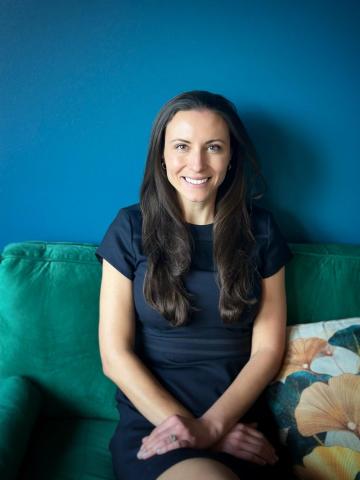Obsessed With Control
 "Books, pencils, pens; books, pencils, pens." This was my mantra at age 8, when I started my battle with obsessive-compulsive disorder.
"Books, pencils, pens; books, pencils, pens." This was my mantra at age 8, when I started my battle with obsessive-compulsive disorder.
My OCD started as an attempt to organize my life after I began experiencing symptoms of Tourette’s syndrome and dyslexia. The uncontrollable movements and my inability to read left me feeling as though nothing was in my control. So control became my obsession. At first, I tried to control my belongings at school. Books had to be arranged in a specific order, from largest on the bottom to smallest. Each pencil, perfectly sharpened, was aligned and ordered by length in the holder. Then I had to close my eyes and touch the tip of each pencil five times before I could start working on assignments.
If I was interrupted, I had to start again. My teacher’s demands to stop and pay attention frustrated me. I wanted to cry, stomp my feet, and yell, “Just let me be!” Couldn’t she see I had to perform this ritual? Didn’t she understand I didn’t have a choice?
I yearned for a safe and predictable world, which I felt my rituals provided. Without them, my anxiety would be overwhelming, and my stability would return to chaos. Over time, though, controlling my external world was not enough to keep anxiety at bay.
Desperately Seeking Control
What I really wanted was control of myself. At first the most obvious way was to control what I wore and ate. Every day it was the same faded green and brown-striped T-shirt. Although kids teased me, I had a sense of power and stability—as long as I wore that T-shirt. As I grew older, wearing the same shirt wasn’t enough, and I controlled what I ate. My list of rules had to be followed to the letter: I could eat only 12 grams of fat per day and 12 grams of sugar per item.
Eventually, my rituals became more elaborate and all-consuming. I could eat at just one restaurant, only white foods—and when no one was looking. By high school, my OCD had all but taken over my life. I followed strict routines from the moment I woke up, including the tedious task of dressing, undressing, and dressing again until I felt that my clothing fit just right. As college approached, I feared what my roommate would think of my inability to eat in front of people, strange dressing habits, and odd predilection for white foods. But I also feared the inevitable surge of anxiety I would experience if I relinquished even an ounce of control.
Obsessions and Compulsions vs. Myself
In my freshman year, my fears waged a battle, and I was at the center of an interminable game of tug-of-war: the safety and solace of my meticulous obsessions and carefully crafted rituals vs. my desire for normalcy.
My desire for control actually caused me to lose control of absolutely everything. One night I passed out in my dorm room. I hadn’t eaten much because I’d been surrounded by people for most of the day and I couldn’t eat by myself. I was terrified, but that’s when I realized I needed to find help for my OCD.
CBT to the Rescue
When my psychology professor was lecturing about cognitive-behavioral therapy, or CBT, I had a great aha moment: If I could change my thoughts, I could also change my feelings. And so I began the difficult challenge of employing CBT to help me overcome my obsessions and subdue my compulsions. My professor, also a licensed therapist, provided support, guidance, and resources along the way.
I practiced exposure and response prevention, or ERP, forcing myself into an anxiety-provoking activity again and again until it no longer triggered a surge of fear: I worked on eating in front of people. The process was painful, but I found that the more I focused on catching, challenging, and changing my harmful thoughts, the less anxiety I felt. It took time, and I cannot tell you that today at age 22 I am 100 percent anxiety-free. But I can say that CBT helped me gain control over the obsessions and compulsions that once ruled my life.
Melissa Binstock is the author of the memoir Nourishment: Feeding My Starving Soul When My Mind and Body Betrayed Me
